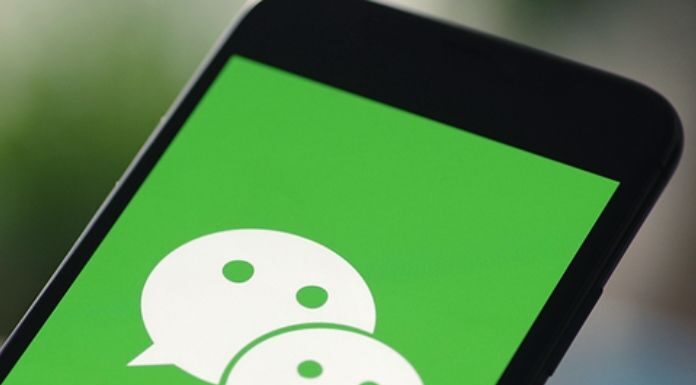In addition to being a messaging app, WeChat is a feature-rich ecosystem. The most social is called Moments, very similar to the Facebook wall. Indeed, even today, few know about the unique capabilities that make WeChat significantly more than a simple informing application. This is happening in the more accommodating part, known as “Minutes. “
Made in 2011 by the Chinese organization Tencent, the WeChat environment has turned into a fundamental piece of day-to-day existence in a couple of years, particularly for the Chinese, yet not just. In 2018 it surpassed one billion clients worldwide, and today it is one of the leading interpersonal organizations, in the fifth spot concerning the quantity of month-to-month dynamic clients (as proposed by the We are social and Hootsuite Computerized 2022 Report).
The Social Soul Of WeChat
WeChat’s success stems from its nature as a multifunctional platform, making it the classic example of a “super app. Notwithstanding the texting administration that permits you to send a message or voice messages, settle on video decisions, and gather discussions, the application will empower you to share photographs and recordings, call a taxi, request food at home, book a visit to the specialist, pay in physical and online stores through Visa and significantly more — all inside one stage.
One of the most exciting features that characterize WeChat, launched in 2012 in the 4.0 version of the app, concerns precisely the Moments. This screen comes closest to the traditional social network. It is a bulletin board that can share and simultaneously view the flow of status updates, images, texts, videos, songs, and published articles. They are accessible from the home page via the “Discover” tab, where a click on the “Moments” icon takes you directly to view the updates of your contacts. Moments can also be connected to Facebook and Twitter accounts, which post the content now on the social platform.
The Moments Principle: “My Friend’s Friend Is Not My Friend”
Attracting over 750 million users a day and over 10 billion accesses every 24 hours, the Moments interface is very similar to the Facebook wall, with the difference that the Moments on WeChat can only be viewed and commented on by their contacts in the address book and not from people outside this circle of friends, emphasizing the central role of privacy for the Chinese giant. Unlike other social networking sites or applications, Moments follows the principle that “my friend’s friend is not my friend.”
This means a user can receive “likes” and comments from people on their friend list. Except for this general principle, the individual setting to block specific friends from seeing owners’ posts can be manipulated by the users themselves. Thanks to this confidentiality that keeps prying eyes away from strangers and creates the basis for intimate and private communication with a high involvement rate, many users prefer to use WeChat to share their content compared to other apps. And that’s also why WeChat Moments offers an exciting opportunity for businesses to tap into guaranteed, reliable, and highly targeted traffic in a space that wouldn’t usually be open to advertising.
Because WeChat Is Also A Social Media
In any case, Moments represent only one of the social aspects of WeChat. With the “Search around you” function, you can meet new people based on your geographic location. Using the smartphone’s GPS, the app can find other users within a radius of 10 kilometers, among which it is possible to choose the ones that pique our curiosity and send them a greeting. With “Agita,” you can meet new people completely casually.
The system identifies those users who are “shaking” the smartphone showing the desire to start a conversation and make new friends. By always taking advantage of the GPS of the mobile device, the circle of new people to know is, however, restricted geographically. The last social option is an original idea to send messages in the WeChat “sea.” With Bottle adrift, you can leave a message (both written and vocal), close it in a bottle, and entrust it to the virtual currency of WeChat, waiting for anyone who is “fishing” to be ready to pick up the Bottle and read the message and possibly, start a conversation.
The Potential Negative Impacts
Faced with so many opportunities, there are also some risks. By relying entirely on Moments as a source of knowledge, you run the risk of disinformation first and foremost: false information spreads quickly through reposting and sharing websites, and since most of the Moments’ friends are acquaintances, the messages they send may seem more convincing than they are. Viral marketing techniques can also be a problem: several companies use WeChat to sponsor and sell their products by leveraging the network of acquaintances and the publication of advertisements several times a day.
To reduce advertising, users have to block their merchant friends, but due to the absence of relevant policies, the quality of the service can hardly be guaranteed. Finally, the data coming from the use of existing functions can be used by developers to offer new parts, finely customized to the user’s tastes. This makes super apps very comfortable to use, and since customization begins with data, the more it is used, the more powerful it becomes. An opportunity that could, however, border on outrage to the users’ privacy.
Also Read: WEB ANALYTICS WEBSITE AUDIENCE MEASUREMENT & GOOGLE ANALYTICS


